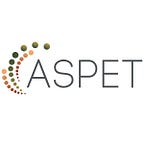By Jessica Bowden, DVM, DACVPM
This summer I was presented with my first opportunity to attend a conference as a bench scientist. I was just under six months post-partum with my fourth baby. Every time I am asked to travel for work purposes it is not just as simple as booking the flight and the hotel. As a working mom in a dual income family, I must also figure out who will be at my house at 4:30 AM when my spouse leaves for work, who will drop my kids off at daycare, who will pick them up and take them to practice and bring them home. On top of that I am still nursing my infant so I was planning out where I would pump, how I would store my breastmilk and how I would fly it home. Eventually it just seemed easier to bring the infant with me.
I’ve been in the veterinary field for nine years and in that female dominated field, bringing children to conferences has become more normalized. I have seen pumping rooms, nursing rooms and even childcare. Bringing children to a basic science conference is a much more novel concept. My baby and I received a lot of attention — most of it positive — but we definitely stuck out. Many people approached me to tell me they wished they had brought their families.
“There are many reasons women and men may choose to bring a child to a conference. Finding childcare outside their normal working hours is challenging and can be an additional expense.”
It is time to normalize bringing children to conferences. Data from the Bureau of Labor Statistics show that nearly 73% of American women in 2022 were working moms and more than 50% of households with children in America are dual income households. In addition, in 2021 women made up about a third of the STEM workforce according to a report by the National Science Foundation. Women are scientists AND they are moms. They shouldn’t have to choose between their kids and their jobs. We should be allowed to be just as successful in our careers without having to sacrifice being present with our kids. The rhetoric that the only women who make it to the top of the ladder are the ones who work insane hours and neglect their families at home, is crazy and outdated.
There are many reasons women and men may choose to bring a child to a conference. Finding childcare outside their normal working hours is challenging and can be an additional expense. Mothers with breastfeeding babies need to make sure their baby has enough milk before they leave, find a way to pump while they are traveling, and navigate the difficult ways of trying to get breastmilk back home. I have had to pump, store, ship and fly with breastmilk and none of that is easy. In addition, conferences are held worldwide, and busy families may see this as an opportunity to take their kids somewhere new and explore a different city, or maybe they just want to spend time with their children. Ultimately, bringing children to the conference might simply be what works best for their family.
“The more children we see [at conferences], the more conference coordinators will start to support and provide for us.”
It is important that the different STEM fields start to recognize this and support working mothers. In order to normalize bringing children to conferences, we have to start actually doing it. Supporting families at a conference means at a minimum providing women with a quiet, private room to pump or nurse their baby or change their diaper since a surprising number of public restrooms still do not have changing tables! Ideally, someday, it will also mean having on-site childcare. At ASPET, I was fortunate that I was able to stay in the same hotel and run upstairs to nurse my baby. The most challenging part was because there were so few children at the conference, he drew a lot of attention, so when we entered a room to attend a lecture and he made any kind of soft noise there was more attention on us than the speaker. If this was normalized, or childcare was provided, we would have been less distracting for everyone.
It is time to adapt and start normalizing children at conferences. The more children we see, the more conference coordinators will start to support and provide for us. Working moms are a huge and valuable part of the workforce. They can get more done in less time because they are used to juggling multiple things.
To those that do decide to bring their children, don’t be afraid to ask for what you need. I have found conference coordinators and location staff to be very helpful and accommodating. It may also be beneficial to let the conference coordinators know you will be bringing children beforehand, that would allow them to judge how many are coming and how they can provide assistance to you.
To those organizing a conference, support working mothers by making it obvious which (if any) events at the conference will not allow children, provide a private room for pumping or nursing, check on mothers with children and see if they need any help. To everyone attending the conference: I know that baby cooing might sound really cute and the lecture may be very… tiring… but please resist turning to look, distracting the speaker and putting pressure on the mother to keep her baby quiet!
Jessica Bowden is a United States Army veterinarian currently finishing her PhD in medical pharmacology. She is focusing her studies on opioid signaling pathways at the University of Arizona.
Call for submissions: Are you interested in being a guest blogger? Pharmaco Corner is where the pharmacology community can share their insight on issues impacting the field. Please contact us at pharmacocorner@aspet.org.
